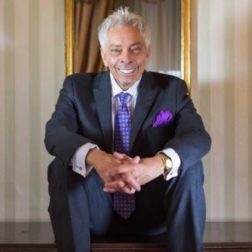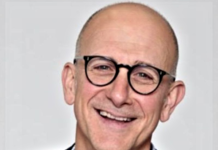
(By Mike McVay) “Words are like bullets. You can’t take them back.” That’s a quote that’s attributed to a number of brilliant authors, business leaders and politicians. I don’t know who first said it to me, but it was said in regard to what’s said on-the-air. When I first heard it, there was no social media. Today, it definitely applies to social media, in-person, on-air and everywhere. We are what we post.
So many of us including myself, filter everything we do as to whether it works on social media or not. A friend and I once had a lunch, and didn’t take a picture of ourselves dining together, leading him to later post on-line “if you have a lunch and there’s no picture for social media … did you even see each other?”
What is concerning to me is that all too often a personality believes that who they are on-air isn’t who they are on social media. There is a belief that if you write in your bio “Opinions expressed are my own” it provides you with special dispensation to write anything you want. Which it doesn’t. The audience that follows you on social media likely listens to you on-air, on-stream or on a podcast. There’s a connection between the two.
You shouldn’t post on your socials in a way that’s distinctly different from who you are on-air. To do so is a signal that your “fake” and not genuine on one versus the other. Obviously, you can use language on social media that you cannot use on-air, but it does reveal something about yourself be it good or bad. The same goes for what social media you share from someone else. If you’re sharing it, you are endorsing it, and that too unveils a part of who you are when the microphone is off.
The other thing to remember is that once you post something, even if it’s for a moment and you delete it, odds are in favor of someone having taken a screen shot of it which they will in turn post and attribute it to you. That’s why you should pause for a moment before hitting “send.” Same goes for posting inappropriate pictures of yourself. People like me checkout job candidate’s social media when they’re under consideration. Once it’s out there … it’s out there.
There’s an adage in spoken word radio that “whoever controls the microphone has the last word.” That’s not true in social media. If someone feels that they can pull you into a social war, they will pepper you with negative or contrary comments, just to get a reaction out of you. Don’t take the bait from these trolls, unless you feel that to be non-responsive is an affirmation of what someone wrote about you. Social media trolls come out from under the bridge in the form of disgruntled people whose soul intent is to upset you. They want to provoke you into a fight and upset you or those who follow you.
No response is sometimes the best response.
Mike McVay is President of McVay Media and can be reached at [email protected]






I think time has changed and new followers are more familiar with social network. As a result, some of them will try to search in different social medias to find more information about you, If they are interested, I mean. So the real question is: does social media help build your public image?
It depends, for some of of the show itself is enough. We don’t care the characters behind the show.
That’s actually inaccurate, and anyone old enough to remember Johnny carson probably is not the ideal candidate to comment on the current state of radio with regard to social media, no offense as I too remember Carson and the mystique that he had. This is I think, indicative of part of the problem. A facebook group im in consists of a lot of young, jocks. They will often post videos they’ve done for tik tok, or videos for the station website or their Instagram etc. All well and good but then you’ll tune into the stream and hear their actual breaks and they’re not particularly good, my theory is that many PD’s have talent so hyper focused on “social media” that the actual shift they’re doing is the last thing that they have the time and energy to attend to. Given the assumption that social media was to be a tool to drive listener engagement with the radio station, or to increase the station’s profile, what I’ ve described seems the most counterintuitive thing there is. Then again that’s radio is it not?
Better yet, why does on-air talent need to be on social media? I think back to Johnny Carson. We knew very little of his personal life. Yet, millions tuned in every night to watch his TV show. I sometimes feel we have a problem of too much information. I don’t really care about the personal lives of the people I listen to on the radio. I have enough to keep up with in MY personal life.
I’ve also noticed most social media is used by on air talent to push what ever product they are being paid to endorse. Very little, if any, interaction with their listeners. In other words, quite worthless.